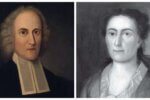In the 1980 presidential election Ronald Reagan upended Jimmy Carter’s bid for a second term by simply asking the American people one question: “Are you better off than you were four years ago?”
With double-digit inflation and a flagging international reputation as 66 Americans were being held hostage by Iran, an overwhelming majority of voters answered with a resounding no!
As we enter the 2016 presidential election cycle, what is the one question voters should be asking candidates as we seek the right leader to restore America’s strength and prosperity?
A few years ago, I was invited by a member of Congress to join him on a visit to the “vault” at the National Archives building just down the street from the Family Research Council’s office in Washington, D.C. The “vault” is a room located within the Archives where valuable uncirculated documents are housed.
It may not have had the drama of National Treasure, but as a student of history, I found it fascinating. One of the documents we were able to view was President George Washington’s handwritten inaugural address given on April 30, 1789, in New York City.
In that first speech, as our first president, he acknowledged dependence upon and gratitude toward God: “It would be peculiarly improper to omit in this first official Act, my fervent supplications to that Almighty Being who rules over the Universe, who presides in the Councils of Nations, … No People can be bound to acknowledge and adore the invisible hand, which conducts the Affairs of men more than the People of the United States.”
President Washington continued with a warning to our young nation: “The propitious smiles of Heaven, can never be expected on a nation that disregards the eternal rules of order and right, which Heaven itself has ordained … .” There were other interesting documents that we were able to view, but the most insightful for me was the United States Senate markup of what we now know as our Bill of Rights.
What Our Rights Really Are
The first order of business for the new Congress in the summer of 1789, after George Washington assumed the office of president, was amending the Constitution to address the issues that were raised during the ratification process. The House of Representatives sent 17 original amendments to the Senate. The first dealt with the election of members of Congress, connecting the number of members in the Congress directly to the population. This was rejected when it was later sent to the states. The second amendment dealt with congressional pay; this was not ratified either, initially. In fact, it wasn’t ratified until 1992.
The third amendment was the first one addressing individual rights. It was a separate, stand-alone amendment. It said: “Congress shall make no law establishing religion or prohibiting the free exercise thereof, nor shall the rights of Conscience be infringed.”
The Senate deleted portions of the 17, and combined others, ending up with 12. The states passed on the first two, ratifying the remaining 10 amendments which were added to our Constitution as the Bill of Rights.
I had not been aware that the House of Representatives, the People’s House, the body closest to the citizens, had crafted the First Amendment dealing with individual rights solely addressing religious freedom and the rights of conscience. The fact that Congress began the list of rights with religious freedom and conscience protections is significant.
What this reveals is that religious liberty is our first freedom, not just because it’s listed first in the Bill of Rights but because our country’s founders understood that religious freedom was a gift granted by God and was to be guarded by government, as it was the foundation for all other freedoms. If God isn’t the author of our rights, we really don’t have any—they are just political freedoms government can give and take back at will. If our primary allegiance isn’t to God, then to whom, or what, is it owed—the state? Clearly, without the freedom to believe and live according to those beliefs, there can be no true freedom.
Governmental Hostility Toward Christians
This understanding of religious freedom has guided both America’s domestic and foreign policy for most of our nation’s 239-year history. Our government has respected and assertively guarded the right of citizens to live according to their beliefs by acts such as the Religious Freedom Restoration Act adopted in 1993. In our foreign policy, Congress has also clearly articulated the priority that is to be given to religious freedom. In 1998, Congress passed the International Religious Freedom Act, making clear that a top priority in America’s foreign policy was to both protect and promote religious freedom. However, in the last seven years we’ve witnessed our federal government’s view of religious freedom go from indifference to outright hostility.
This indifference is seen not only in the policies advanced by the Obama administration but even in the president’s word choice. The president has largely avoided using the term religious freedom, choosing to instead use the phrase “freedom of worship,” which falls woefully short of the recognized liberty in the First Amendment. The term “freedom of worship” represents a narrow view of religious liberty that suggests that orthodox faith can be quarantined within the walls of a church or synagogue. The president’s recent remarks at the National Prayer Breakfast, equating the medieval Crusades with current day Islamic terrorists, ISIS, reveals either a blind subservience to moral equivalence, or a genuine lack of awareness of what religious thinkers from within Christianity and Islam are actually saying and doing. Either way, such remarks are troubling. They would be disturbing comments from the average student of history—but are especially so from a leader charged with upholding religious rights around the world. Aside from his misguided remarks, the president has failed to take sufficient action to stop ISIS from engaging in wholesale slaughter of Christians and other groups in the Middle East. A State Department spokesperson’s recent comments that jobs are crucial in addressing the “root causes” of the ISIS problem, and the highlighting of demonic cultist Joseph Kony, the former leaders of a guerrilla group in Uganda as an example of a “Christian,” only reveal the detachment of those charged with running our country. The president has failed to raise the plight of Pastor Saeed Abedini as a precondition to negotiations with Iran over its nuclear program. Pastor Abedini, an American citizen, is sitting in prison in Iran for simply living according to his faith. The least the Obama administration could be doing is demand he be released as a precondition to any talks with Iran.
Will the Government Try to Change Our Beliefs?
While American Christians languish in foreign prisons, the world becomes increasingly dangerous for Christians. As Open Doors USA reported earlier this year, the president’s foreign policy is focused on pressuring foreign governments to adopt LGBT policies, which often run counter to the religious and cultural views of the nation with which we’re trying to work. At home, the administration has completely disregarded claims that its laws and policies are infringing on religious believers’ consciences. The president has refused to exempt a ministry run by elderly Catholic sisters from its onerous Affordable Care Act employer mandate, steadfastly insisting that these believers be conscripted in providing abortion-related drugs and services despite their sincere conscientious objections that they don’t want to play a part in a process which ends human life.
The administration also refused to offer religious believers any exemption from new requirements under Executive Order 13672 that certain federal contractors extend special employment benefits based upon sexual orientation and gender identity. According to the president, it doesn’t matter that religious organizations may want to hold onto their beliefs when doing business with the government; they must be forced to change. In fact, Democratic presidential candidate, Hillary Clinton, recently spoke of how religion is an impediment to abortion rights at the Women in the World Summit. “Laws have to be backed up with resources and political will,” she asserted. “And deep-seated cultural codes, religious beliefs and structural biases have to be changed.”
Note that amazing phrase: “Religious beliefs … have to be changed.” By whom, Mrs. Clinton? The federal government? It is this open hostility toward religious freedom from our own government that must change.
Our President Must Secure Religious Liberty
America’s security and prosperity, certain to be campaign issues, will elude us as a nation unless the religious liberty of America’s citizens are fully restored and protected. Religious liberty and with that liberty the future of America will be determined by this upcoming election. Bible-believing Christians cannot stand on the sidelines. We must be informed and engaged so that we might select a presidential candidate who will not just halt these attacks on religious freedom, but undo and reverse the anti-religious freedom policies implemented by the Obama administration.
The question we must ask the presidential candidates, and expect them to answer, is: “Will you restore religious freedom, the freedom to believe, and live according to those beliefs in America?” We must understand that our nation’s future depends us restoring this fundamental freedom and the candidates must understand that their bid for the White House depends upon a resolute commitment to restoring our first freedom.
Tony Perkins is president of the Washington, D.C.-based Family Research Council.
Watch Tony Perkins respectfully discuss his view on the legalization of same-sex marriage at perkins.charismamag.com.







Leave a Comment
You must be logged in to post a comment.